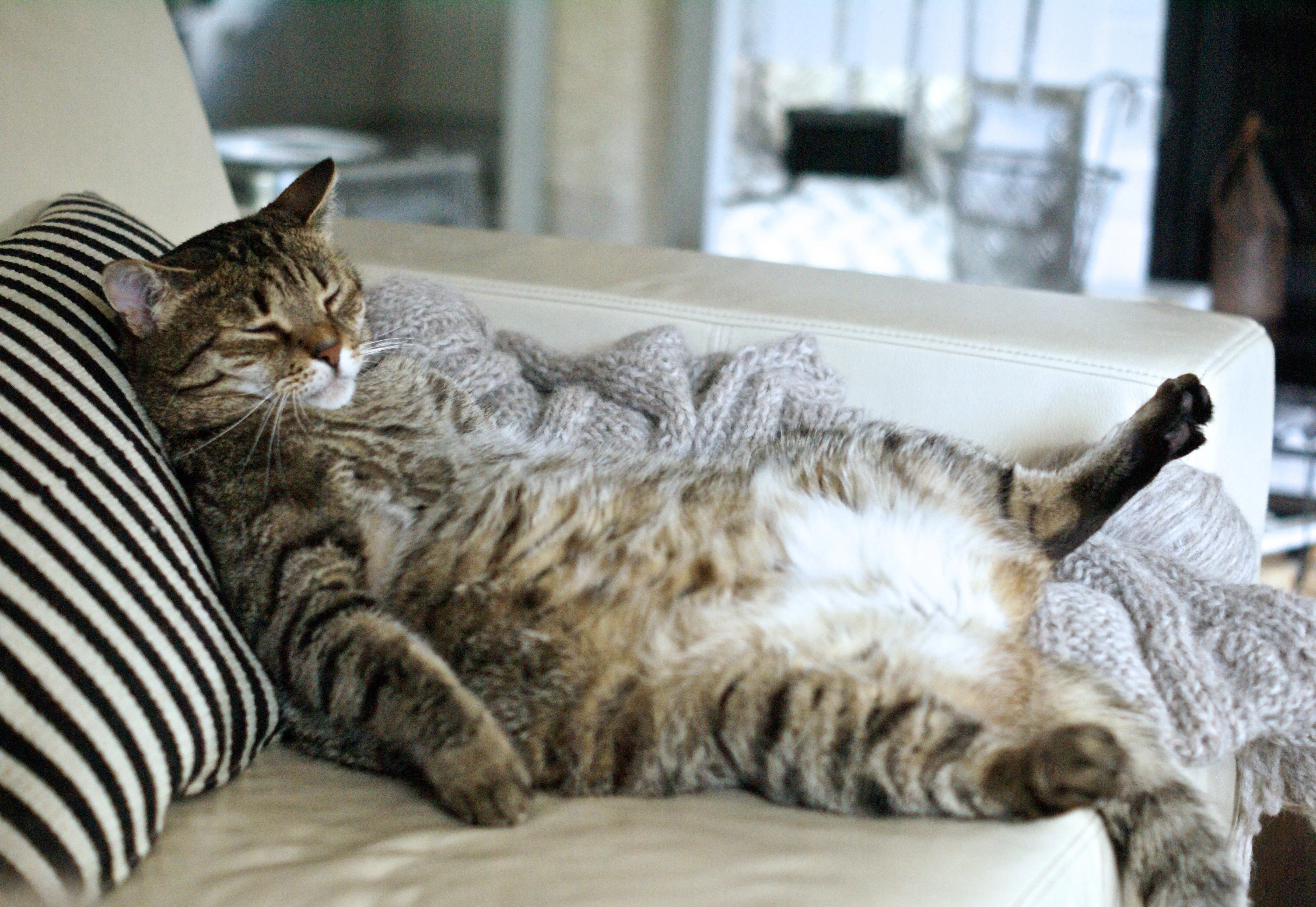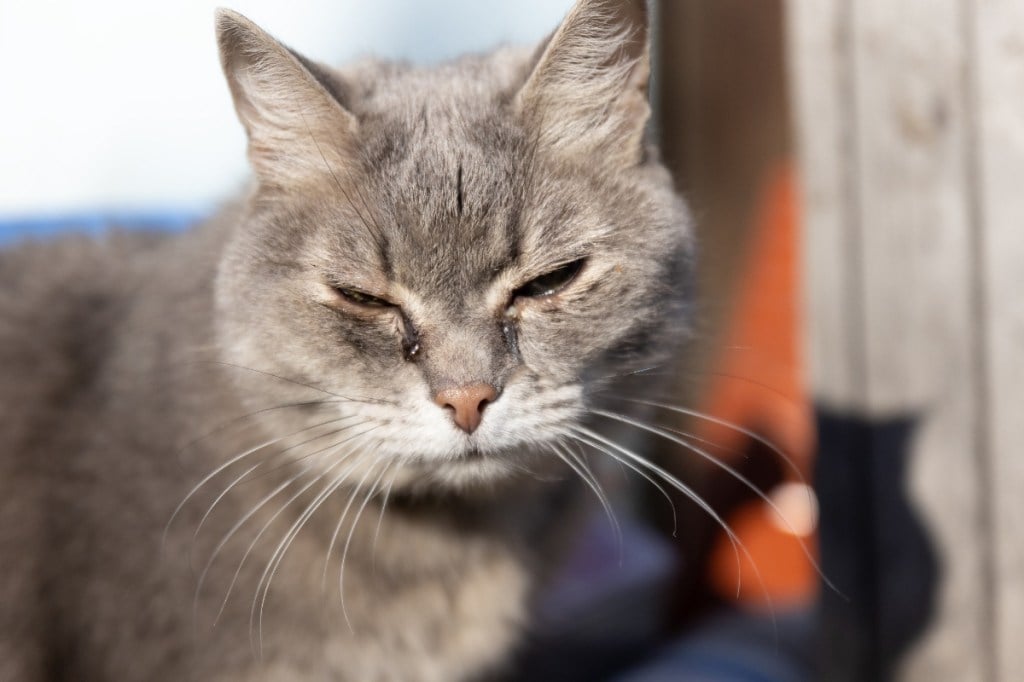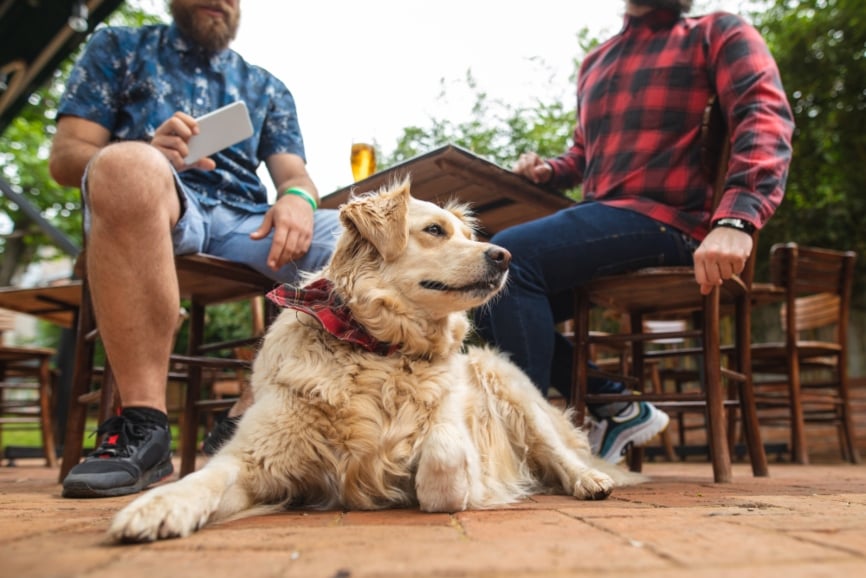Table of Contents
Have you heard of the cat primordial pouch? Maybe you know it by one of its other, less technical terms like the speed bag, mud flap, or porch swing, to name just a few.
Whatever you call them, primordial pouches are a normal part of cat anatomy. However, changes in your cat’s primordial pouch can be associated with health problems. Read on to learn everything you need to know about primordial pouches and when you should be concerned.
What Is the Primordial Pouch?
Primordial pouch is simply the name we have given to the flap of loose skin, fat, and other tissues that runs along the bottom of a cat’s belly. It is usually most evident towards the back end of their belly, between their rear legs.
All cats have primordial pouches, but some are more evident than others. It’s an individual thing. One of your cats may have a large pouch that swings back and forth when they trot down the hallway while another’s might be barely noticeable. Both versions (and everything in between) can be normal.
Why Do Cats Have a Primordial Pouch?
We can’t say with certainty why cats have them, but there are several widespread theories as to the purpose of the cat primordial pouch:
- Primordial pouches store fat, which can be used as an energy source if food becomes less available.
- All that loose skin along a cat’s belly allows them to stretch w-a-y out when they run and jump, increasing their maneuverability.
- A cat’s soft belly is one of their vulnerable spots. Having an extra layer of protection may help prevent serious damage to their abdominal organs if they get into a fight or suffer other injuries.
Primordial Pouch—What’s Normal, What’s Not
Young kittens usually don’t have much of a cat pouch. It often starts to develop in earnest when they are six months old or so. As cats reach their middle years (seven to ten years old), their pouch may start to hang a little lower. Just like us, their tissues become weaker and less elastic with age, which can result in sagging.
Primordial pouches come in all different shapes and sizes. However, even large cat pouches that hang quite low should be made up mostly of skin, not fat. If the fat pad within your cat’s pouch is slowly getting larger, there’s a good chance that they are gaining unhealthy amounts of weight.
Body condition scoring can help you tell the difference between an overweight cat and a slim cat with a large primordial pouch. Look at four factors to determine if your cat has an ideal body condition:
- Your cat should have a visible waist when you look down on them from above.
- You can easily feel their ribs with gentle pressure, but their ribs should not be visible.
- Their belly (minus the pouch) and their chest will be at approximately the same height off the ground.
- The cat’s abdominal fat pad within the primordial pouch should be small.
What to do When Weight Gain Makes a Cat’s Pouch Larger
According to recent estimates, more than 60% of cats are overweight or obese, so don’t be surprised if you find that your cat’s enlarging primordial pouch is a sign of weight gain.
Being overweight can reduce a cat’s lifespan and lower their quality of life. The hormones and cytokines released by fat lead to chronic inflammation and increase a cat’s risk for diabetes mellitus, heart disease, hepatic lipidoses, arthritis, lower urinary tract disease, and some types of cancer.
If your cat is only a little overweight, you may be able to help them lose weight on your own. Take a week or so to gradually reduce the number of calories your cat takes in by about fifteen percent. First scale back on treats and then, if necessary, reduce the amount of cat food you offer or switch to a high protein, diet cat food that has a lower caloric content (kcal/kg) than your cat’s current diet. This information is printed on cat food labels.
Weigh your cat weekly, with the goal of helping them lose around one percent of their body weight per week. In other words, a 15-pound cat can safely lose about 0.15 pounds per week.
Talk to your veterinarian if your cat is struggling to lose weight or if you have any questions or concerns about their overall health, including their primordial pouch.






